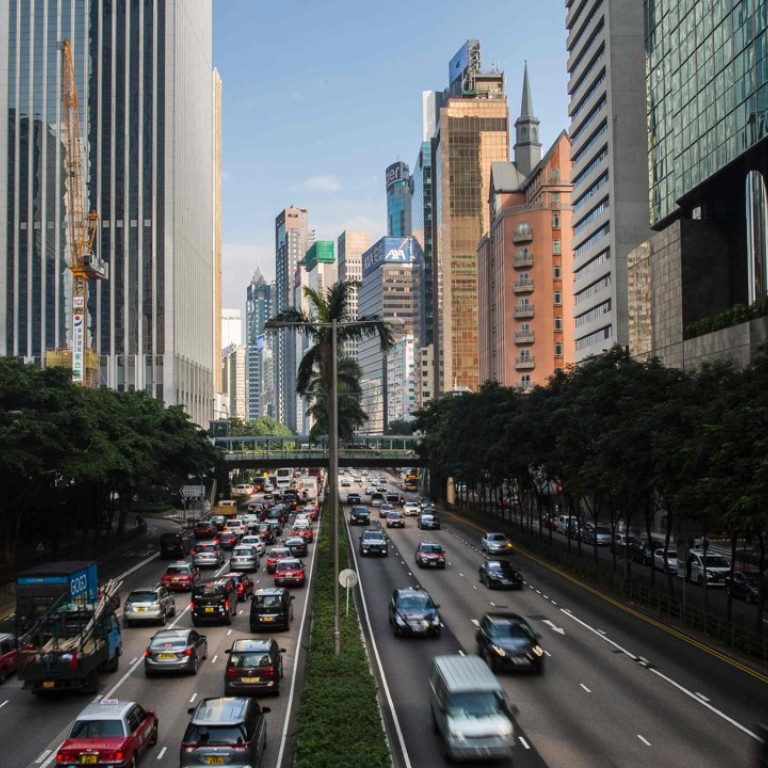
Hong Kong smart city study suggests car pooling innovations
Troubled ride-hailing firm Uber has welcomed the recommendations but government says not all of report’s points will be adopted
Car pooling and sharing should be encouraged in Hong Kong as part of the government’s push to build a smart city, a study submitted to the Innovation and Technology Bureau has suggested.
But the government said that recommendations from the study may not necessarily be adopted, although ride-hailing company Uber has expressed optimism about a public-private partnership to promote such services.
The bureau took the idea further by commissioning PricewaterhouseCoopers to conduct a study in September last year.
The report, which was submitted last month, proposed measures covering the six major development areas of mobility, living, environment, people, government and economy.
One of the short-term measures – to be implemented by 2020 – was the promotion of car pooling and sharing.
While car pooling in the city is legal, the Road Traffic Ordinance prohibits the carriage of passengers for hire or reward without a permit – essentially outlawing services such as Uber.
Citing the example of Singapore, the report suggested the city spell out clearly in legislation that the driver could “recover” part of the costs, such as fuel and tunnel tolls, from travelling companions.
A mobile application could also be developed to facilitate car pooling, the report added.
Asked if the study has breathed new life into legalising its troubled business in the city, Uber said in a statement it was pleased to see that the government was open to developing Hong Kong into a smart city, which could enhance the transportation industry.
“We look forward to joining forces with the government and relevant stakeholders, to help orchestra collaboration between public and private sector, so we could together contribute to the smart city development in Hong Kong,” the statement added.
Other pilot projects proposed by the study included intelligent traffic lights to reduce waiting times for cars and pedestrians, real-time information for parking spaces to assist drivers, and even boosting cultural tourism in Central by introducing digital elements such as interactive videos and electronic coupons.
The bureau said it would consult stakeholders and various sectors in the community on the proposals, with an aim to publish the final smart city blueprint by the third quarter of 2018.

